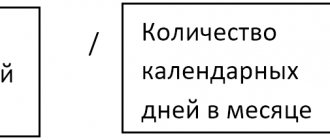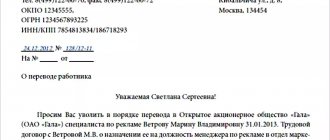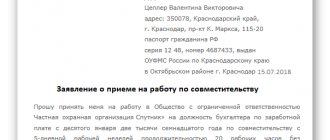The deferments provided by law for a smoother transition of business to the new tax control regime have already expired - which means that the use of online cash registers today is a prerequisite for almost all types of organizations and individual entrepreneurs. Despite the relaxation of certain provisions, including the possibility of replacing monetary penalties with warnings, as well as simplification of the regulations for self-correction of violations, potential audits by tax authorities remain an urgent problem. How much will the fine for a failed check be for individual entrepreneurs and LLCs in 2021-2022, and what liability is provided for the absence or non-use of a cash register? Let's figure it out.
General overview
The norms enshrined in the second part of Article 14.5 of the Code of Administrative Offenses of the Russian Federation determine penalties for legal entities guilty of non-compliance with the rules of trading, or more precisely, violating the procedure for working with online cash registers. For such cases, the law provides for the following types of administrative penalties:
- For officials who have committed an offense, the penalty imposed is from a quarter to half of the amount of the settlement made. At the same time, the fine for failure to use the online cash register will not be less than 10 thousand rubles, and is applied, among other things, to private entrepreneurs, in accordance with the addition to the content of Article 2.4 of the Code.
- For organizations guilty of a similar violation, the amount of punishment will be equal to at least 75% of the identified transactions, the minimum threshold value is 30 thousand rubles.
In cases where a business, for whatever reason, fundamentally ignores the requirements of the current regulations, the provisions of the third part of the previously mentioned article are used. The law determines that liability for a receipt not punched during a sale and trading without a cash register, if this fact is repeatedly detected, as well as if the turnover amount exceeds 1 million rubles, may be more severe:
- For officials - disqualification for a period of 12 to 24 months.
- In the case of individual entrepreneurs and organizations - suspension of work activities (up to 90 days).
However, in some situations, the measures taken against violators turn out to be more lenient. Non-profit enterprises, as well as entities representing small and medium-sized businesses, for which the possibility of issuing an official warning is provided for the first time, can avoid financial losses.
What is the fine for not having a cash register?
If entrepreneurs or companies required to record sales through the cash register do not comply with this requirement and continue to conceal revenue, the Federal Tax Service has the right to apply a fine to them for failure to use cash registers:
- for individual entrepreneurs and self-employed persons - up to half of the unaccounted profit, but not less than 10 thousand rubles;
- for organizations - up to 100% of the amount of unaccounted sales, but not less than 30 thousand rubles.
In case of a repeated offense with unaccounted revenue of more than 1 million rubles, the entrepreneur faces tougher sanctions:
- for authorized persons - disqualification for up to 2 years;
- for individual entrepreneurs and enterprises - a ban on conducting activities for up to 3 months.
Let's look at the use of sanctions using a specific example. A cosmetics store registered as an LLC sells products without cash registers. Over the entire period of activity, cosmetics worth 500,000 rubles were sold. If a violation is detected, the Federal Tax Service inspector may impose a fine on the LLC for operating without a cash register in the amount of up to half a million rubles. If the store does not supply a cash register, the next violation may result in the business being suspended for 90 days. The fine for the absence of a cash register for individual entrepreneurs will be no more than 250,000 rubles. Sanctions apply even if the cash register is already registered with the Federal Tax Service, but for some reason is not used in trade.
Cash registers for all areas of business. Delivery throughout Russia.
Leave a request and receive a consultation within 5 minutes.
What fine is imposed if there is no cash register?
Such wording is not found in the regulations of the Code of Administrative Offenses of the Russian Federation, therefore the mere fact of the absence of a cash register is not a basis for prosecution. It is an offense to directly conduct trading activities without using them, as well as non-compliance of the installed equipment with the requirements defined by the provisions of Federal Law No. 54. In the latter case, the amount of the penalty for legal entities is 30 thousand rubles.
The presence of cash register equipment is considered as a prerequisite for mutual settlements with clients (however, there are a number of exceptions, which we will return to a little later), as well as when making payments from other organizations or entrepreneurs - but only in situations where cash or a bank terminal is used.
Types of violations
Claims from regulatory authorities may be due to various circumstances. In addition to the already mentioned technical non-conformity of the equipment, the following offenses are also considered:
- Failure to comply with the regulations for initial and re-registration, including time limits. Involves a warning or penalty in the amount of up to 3,000 (for organizations - up to 10,000 rubles).
- Failure to provide or untimely provision of information and documentation requested by tax representatives. Provides for similar sanctions.
- Sale without a receipt - in 2021-2022, liability for non-use of cash registers in the form of a fine for individual entrepreneurs and officials reaches up to two, for legal entities - up to ten thousand rubles. for each detected case.
It is worth noting that the mere fact of punishment is not a basis for releasing the culprit from the obligation to correct violations. In accordance with the law, the statute of limitations for prosecution is equal to one year - the starting date for counting the period is determined by the day of the actual commission of the offense, and when considering cases related to ongoing offenses - the moment of detection by the regulatory authorities.
Legislative framework
For failure to issue a cash receipt to the buyer, administrative liability is provided, since this is a direct violation of 54 Federal Law of May 22, 2003, Article 5. If the violation is detected for the first time, you can get off with a warning.
For entrepreneurs, the statute of limitations for administrative liability is 2 months (Part 1, Article 4.5 of the Administrative Code “Limitation of bringing to administrative liability”). But practice shows that the main type of sanctions for such violations are fines.
Administrative responsibility for cashiers and officials
For non-issuance of a check:
- cashiers may be fined - the fine amount is 1500-2000 rubles;
- the organization will pay 30,000-40,000 rubles;
- officials (the head of the organization or his deputy) will pay 3000-4000 rubles for the negligence of their employees.
From the point of view of the Resolution of the Presidium of the Supreme Arbitration Court of May 22, 2007 No. 16234/06, it is enough for an individual entrepreneur to do everything in his power to ensure that sellers issue cash receipts. And then he is released from responsibility.
The fine for non-delivery falls on the seller in this case. True, provided that several conditions are met at the same time:
- the store has a cash register (cash register) registered with the tax authority;
- the seller’s job description states the obligation to issue cash receipts and the seller is familiar with it;
- The seller also signed an instruction on financial liability.
LLC was less fortunate. According to the Resolution of the Presidium of the Supreme Arbitration Court No. 8688/04 (November 23, 2004) and the Supreme Arbitration Court determination No. 16234/06 (03/20/2007), the negligence of an employee when using a cash register does not exempt the company from liability for an administrative offense.
But at the same time, no one deprives the company of the right to demand from the seller who did not issue a cash receipt, compensation for the damage that he caused by his actions. But the tax service cannot hold an employee accountable (ruling of the Constitutional Court of December 14, 2000 No. 244-O). After all, the seller who sells the goods does so on behalf of the employer, and not on his own.
How much can a store be fined?
Since 2016, fines for non-use of cash registers have increased significantly in accordance with Law No. 290-FZ.
Now they are:
- For officials 25-50% of the settlement amount without the use of cash register systems (at least 10,000 rubles).
- For legal entities, 75-100% of the settlement amount without the use of cash register (not less than 30,000 rubles (clause 2 of article 14.5 of the Administrative Code). Repeated offenses are punished more severely: disqualification of officials for a period of 1 to 2 years, or suspension of the organization’s activities for period up to 90 days (Clause 3 of Article 14.5 of the Code of Administrative Offenses of the Russian Federation).It
is true that the amount of settlements without issuing checks must be significant - 1 million or more.
Responsibility for violated consumer rights
Careless cashiers who forget to issue a receipt may be influenced by the Tax Service of the Russian Federation, the Society for the Protection of Consumer Rights, or Rospotrebnadzor.
One of the methods of influence is test purchases, the results of which may result in a fine. also leave a review in the book of complaints and suggestions , which of course will spoil the reputation of the retail outlet where the violation was detected.
Nuances for individual entrepreneurs
Individual entrepreneurs were required to issue a receipt for a purchase if:
- the seller sold the goods;
- the client received the service for which he paid;
- the client received the service according to a previously formed order.
For a blank check in 2022, an individual entrepreneur will pay a quarter or half of the price of the goods sold or services provided (at least 10,000 rubles).
Penalty for failure to clear a cash register check for individual entrepreneurs and LLCs
The term “online cash register” has been used by legislators since 2016, when the concept was included in the updated version of Federal Law No. 54. A distinctive feature of the new equipment is the function of automatic downloading of fiscal data received by the Federal Tax Service through the OFD platforms. Old versions of cash registers have not been registered since February 2022, so the use of such equipment is considered a violation qualified as non-use of cash registers.
The provisions enshrined within Part 2 of Art. 14.5 of the Administrative Code determine liability for failure to issue a cash receipt to the buyer - fines for individual entrepreneurs and LLCs required to issue paper or electronic documents confirming payment are 2 and 10 thousand, respectively. If the equipment is missing in principle, but the entrepreneur or enterprise continues to trade, the amount of the penalty is determined as a multiple of the amount of unaccounted transactions identified by the inspectors.
Penalty for lack of cash register
The absence of a CCP in itself is not a violation. The Code of Administrative Offenses of the Russian Federation does not contain penalties for failure to install a cash register. But for the absence of a cash register that meets the requirements of Law No. 54-FZ, they can be punished. In this case, the fine for legal entities will be 30 thousand rubles (Part 2 of Article 14.5 of the Code of Administrative Offenses of the Russian Federation).
Cash register equipment is required for any settlements with individuals for goods, work or services. If settlements are made with legal entities and individual entrepreneurs - only for payments in cash, by card or via smartphone using a POS terminal (letter of the Ministry of Finance of the Russian Federation dated June 30, 2020 No. 03-01-15/56464).
Organizations may not use cash registers only in the cases specified in Art. 2 of the law on CCP No. 54-FZ. If we are talking about settlements with individuals, then there are very few such cases, for example, the sale of ice cream in kiosks.
How to avoid penalties for non-use of cash registers
The punishment imposed for non-compliance with the sales registration rules can be prevented using the algorithm set out in the note to Article 14.5 of the Code of Administrative Offences. The legislator admits the possibility of making mistakes, given the difficulty of adapting a business to the new regime, and offers fairly simple solutions in this case:
- Voluntary fulfillment of an obligation providing for financial liability in the period preceding the official issuance by regulatory authorities of a resolution confirming the fact of a violation.
- Independent execution of a correction check. Amendments made to the Code, which entered into force in 2022, allow for corrections to be made without notifying the inspectorate through a personal account - previously no more than three working days were allotted for providing information.
It should be taken into account that the fine for an unissued check is canceled only in cases where representatives of the tax service did not have time to identify the offense during the audit.
How to avoid a fine for not using an online cash register
What to do to avoid a fine for a blank check, non-use of cash registers, failure to issue a check to the buyer and other violations is indicated in the note to Art. 14.5 of the Code of Administrative Offenses states:
- Voluntarily fulfill an obligation, for failure to fulfill which you may be fined. However, this must be done before the tax office makes a decision on the violation.
- Break through the correction check. The rules for generating a correction check are in the Methodological Recommendations of the Federal Tax Service dated August 6, 2018 No. ED-4-20 / [email protected] At the same time, starting from July 2022, it is no longer necessary to notify the tax office of a violation within three days.
The Federal Tax Service said that in 2022, people were most often fined under Part 2 of Article 14.5 of the Code of Administrative Offenses - non-use of cash registers, and under Part 4 of Article 14.5 of the Code of Administrative Offenses - use of a cash register with violations. Thus, in the first half of 2022, the Federal Tax Service carried out more than 4.5 thousand inspections in Moscow alone. Organizations and individual entrepreneurs were fined 30+ million rubles.
Is there a penalty for incorrect taxation on a check?
A fine for an incorrect SNO on a check may be imposed under Part 4 of Article 14.5 of the Administrative Code:
- for officials - from 1,500 to 3,000 rubles,
- for legal entities - from 5,000 to 10,000 rubles.
I am an individual entrepreneur, will there be a fine for not having an online cash register?
The fine for an individual entrepreneur not having an online cash register is 25-50% of the hidden money, but not less than 10,000 rubles. Repeat violations may result in a 90-day suspension.
Until July 1, 2022, only individual entrepreneurs who provide services and produce goods of their own production and who do not have employees with concluded employment contracts could not use the online cash register until July 1, 2022. Entrepreneurs who entered into an agreement had to deliver the cash register within 30 days.
Sanctions for violations of online cash registers
Close attention to careful compliance with the new requirements allows you to avoid most possible mistakes. The main thing is to take care of the timely installation and registration of equipment, as well as concluding an agreement with the OFD, which is responsible for promptly uploading data to the Federal Tax Service. Otherwise, there is a possibility of not only receiving a warning, but also being subject to a monetary penalty, as well as disqualification or suspension of activities, depending on the status of the subject.
It is worth noting that the legislator is more loyal to representatives of small and medium-sized businesses with limited resources. This is expressed not only in the provision of an initial deferment until 2021, but also in the fine imposed for the absence of a cash register, failure to use an online cash register, selling goods without a receipt and working without a cash register - in trade for individual entrepreneurs and LLCs belonging to this category , less stringent sanctions are provided.
As a rule, for the first time, tax authorities limit themselves to a warning - provided that the identified offense did not entail a threat to society, an emergency situation, or property damage. A complete list of factors determining the possibility of applying a more lenient punishment is given in the contents of the second part of Article 3.4 of the Administrative Code.
Penalty for failure to issue a check
Situations related to non-compliance with the rules requiring the provision of documents to buyers confirming the fact of mutual settlement are considered by the provisions of Part 6 of Art. 14.5 Code of Administrative Offences. In accordance with the law, such violations threaten individual entrepreneurs and responsible officials with a financial penalty in the amount of 2,000 rubles, legal entities - up to 10,000. In the presence of mitigating circumstances, an official warning may be issued as an alternative.
Fines for violating the use of cash register systems
In addition to liability for non-use of cash registers, fines may follow for the following types of offenses:
1. Use of equipment that does not meet the established requirements, or the use of cash register systems in violation of the procedure for its registration or re-registration. For this type of violation penalties are imposed under Part 4 of Art. 14.5 Code of Administrative Offenses of the Russian Federation:
- for officials and individual entrepreneurs - a warning or a fine from 1,500 to 3 thousand rubles;
- for legal entities - a warning or a fine from 5 to 10 thousand rubles.
2. Failure to provide information and documents at the request of tax authorities or their submission in violation of deadlines is punishable under Part 5 of Art. 14.5 Code of Administrative Offenses of the Russian Federation:
- for officials and individual entrepreneurs - a warning or a fine from 1,500 to 3 thousand rubles;
- for legal entities - a warning or a fine from 5 to 10 thousand rubles.
3. Failure to issue a cash receipt to a client may result in prosecution under Part 6 of Art. 14.5 Code of Administrative Offenses of the Russian Federation:
- for officials and individual entrepreneurs - a warning or a fine of 2 thousand rubles;
- for legal entities - a warning or a fine of 10 thousand rubles.
Moreover, according to Part 4 of Art. 4.1 of the Code of Administrative Offenses of the Russian Federation, the imposition of sanctions does not relieve users of cash register systems from fulfilling the obligations that they violated.
The statute of limitations for holding people accountable for violations in the use of cash register equipment is one year. Its countdown begins from the date of the violation. If the offense is ongoing - from the moment it is detected by the inspector (Parts 1, 2, Article 4.5 of the Code of Administrative Offenses of the Russian Federation). A continuing offense is a long-term, systematic violation of the rules for using cash register systems. This conclusion follows from paragraph 14 of the Resolution of the Plenum of the Armed Forces of the Russian Federation dated March 24, 2005 No. 5 “On some issues that arise for courts when applying the Code of Administrative Offenses of the Russian Federation.”
In 2022, the Ministry of Finance prepared three bills:
- “On amendments to parts one and two of the Tax Code of the Russian Federation in connection with the improvement of legislation on the use of cash register equipment”;
- “On Amendments to the Code of the Russian Federation on Administrative Offences”;
- “On amendments to certain legislative acts of the Russian Federation and on the recognition as invalid of certain legislative acts (provisions of legislative acts) of the Russian Federation” - on the loss of force of the law on CCP.
According to the bills, the rules regulating the procedure for using cash registers and establishing fines for offenses will be transferred to the Tax Code of the Russian Federation. Most of the rules will not change. But the law on CCP and the corresponding provisions of the Code of Administrative Offenses will lose force. The documents are currently undergoing public discussion. The agency expects that the new rules will come into effect in 2022.
Among the innovations proposed by the bills is the emergence of a new type of tax control - operational. As part of the operational inspection, inspectors will monitor the correctness of recording of calculations, including the completeness of revenue accounting. Operational control will be carried out in two forms:
- operational checks. They will be appointed at the place of business with the possible involvement of the FSB and conducting test purchases, as well as monitoring the work;
- monitoring.
For violators who do not record payments, restrictions are planned:
- freezing transactions on bank accounts;
- restriction of access to Internet resources (information systems and programs). Controllers will block websites, mobile applications, social networks, blogs;
- suspension of activities for those who trade through stationary retail outlets.
The last two measures will be applied only under certain conditions and by a separate decision of the leadership of the Federal Tax Service.
In addition, the amounts of existing fines will be adjusted and new ones will be added.
The amounts of current and planned sanctions are presented in the table:
| Type of violation of the use of CCT | Current sanctions | Planned sanctions |
| Failure to provide information and documents at the request of tax authorities (submission in violation of deadlines). It is necessary to respond no later than three working days from the moment the request is posted in the cash register account (clause 10, clause 9 of the appendix to the Order of the Federal Tax Service of the Russian Federation dated May 29, 2017 No. ММВ-7-20 / [email protected] ) / [email protected] ). | Part 5 Art. 14.5 Code of Administrative Offenses of the Russian Federation: — for officials and individual entrepreneurs — a warning or a fine from 1,500 to 3 thousand rubles; — for legal entities — a warning or a fine from 5 to 10 thousand rubles | Draft Federal Law “On Amendments to Parts One and Two of the Tax Code of the Russian Federation in Connection with the Improvement of Legislation on the Use of Cash Register Equipment”: — for individual entrepreneurs — a warning or a fine of 3 thousand rubles; — for legal entities — warning or fine of 10 thousand rubles |
| Non-use of cash registers (calculation without fixation) | Part 2 Art. 14.5 Code of Administrative Offenses of the Russian Federation: - for officials - from 1/4 to 1/2 of the settlement amount without the use of cash register systems, but not less than 10 thousand rubles; — for legal entities — from 3/4 to the full settlement amount without the use of cash register, but not less than 30 thousand rubles | Draft Federal Law “On Amendments to Parts One and Two of the Tax Code of the Russian Federation in Connection with the Improvement of Legislation on the Use of Cash Register Equipment”: — for individual entrepreneurs — 1/2 of the settlement amount without fixing, but not less than 10 thousand rubles; — for legal entities — the settlement amount without fixing, but not less than 30 thousand rubles |
The legislator proposes to introduce two new concepts into the Tax Code of the Russian Federation - “imaginary and feigned calculation.” They plan to introduce a fine for their implementation:
- for individual entrepreneurs - 50 percent of the amount of the identified imaginary or feigned payment, but not less than 10 thousand rubles;
- for a legal entity - the entire amount of the detected imaginary or feigned payment, but not less than 30 thousand rubles.
Large sanctions will follow for the absence of the name of the labeled product on the receipt or the indication of a distorted name. They will collect 50 thousand rubles from individual entrepreneurs, and 100 thousand rubles from legal entities.
Lack of nomenclature in the check
Starting from February 2022, organizations and individual entrepreneurs working on a patent, simplified tax system, as well as using the unified agricultural tax, must provide documents in the structure of which the specific nomenclature name of the commodity item is indicated.
The absence of this detail is the basis for recognizing the invalidity of the issued confirmation, and makes it possible to bring the culprit to justice, determined by the provisions of paragraph 3 of Article 14.5 of the Code of Administrative Offenses. The fine for officials varies within three thousand rubles, for entrepreneurs and enterprises - up to 10 thousand.
To avoid such sanctions, it is necessary to take care of the convenience of interaction between cashiers and the equipment they use. The nomenclature should be clear, navigation through catalogs should be convenient and fast. To solve this problem, as well as create conditions conducive to operational accounting and control, it is recommended to use software solutions from , which significantly facilitate the performance of daily routine operations.
Responsibility for incorrect taxation system in the check
Yes, penalties were approved within the framework of the fourth part of the above article of the administrative code. The maximum amounts that can be imposed as punishment are similar to the punishment for the lack of nomenclature positions - up to three thousand rubles for employees, and up to ten for organizations.
What is the fine for an individual entrepreneur if there is no online cash register?
The final amount depends on the amount of income obtained illegally. The law requires withholding up to 50% of hidden trade turnover, but not less than 10,000 rubles, while a repeated violation leads to a decision to suspend activities.
Projects of changes planned for 2021-2022
Adjustments to regulatory acts were proposed by the Ministry of Finance back in 2022, and involve the transfer of the former norms of Federal Law No. 54 and the Code of Administrative Offenses into the structure of the Tax Code. Among the innovations, special attention should be paid to the introduction of an operational control system - verification by the Federal Tax Service of the facts of recording mutual settlements, as well as the conscientious reflection of the volume of revenue sold in two forms:
- General monitoring - processing data on cash register operations coming from various sources, evaluating the information received and making decisions.
- Field operational activities carried out at the place of actual activity of an entrepreneur or organization, and allowing both the involvement of representatives of the FSB and the conduct of test purchases, the purpose of which is to identify offenses.
In the future, it is also likely that the structure, magnitude and procedure for assigning penalties will change. However, today the question of what fine is imposed for not using a cash register - if the individual entrepreneur did not punch or issue a cash register receipt - is regulated by previously adopted provisions.








